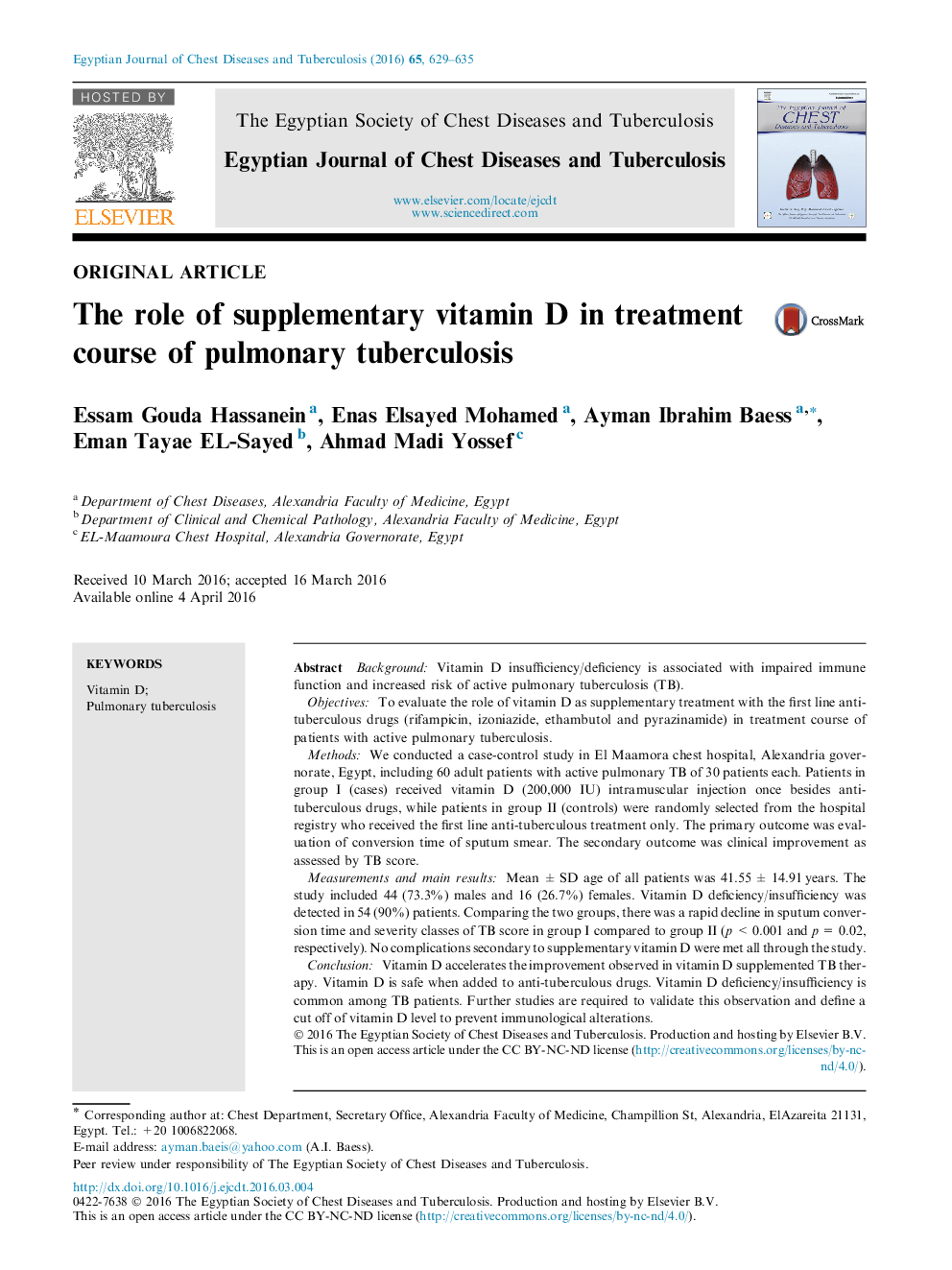| Article ID | Journal | Published Year | Pages | File Type |
|---|---|---|---|---|
| 3399824 | Egyptian Journal of Chest Diseases and Tuberculosis | 2016 | 7 Pages |
BackgroundVitamin D insufficiency/deficiency is associated with impaired immune function and increased risk of active pulmonary tuberculosis (TB).ObjectivesTo evaluate the role of vitamin D as supplementary treatment with the first line anti-tuberculous drugs (rifampicin, izoniazide, ethambutol and pyrazinamide) in treatment course of patients with active pulmonary tuberculosis.MethodsWe conducted a case-control study in El Maamora chest hospital, Alexandria governorate, Egypt, including 60 adult patients with active pulmonary TB of 30 patients each. Patients in group I (cases) received vitamin D (200,000 IU) intramuscular injection once besides anti-tuberculous drugs, while patients in group II (controls) were randomly selected from the hospital registry who received the first line anti-tuberculous treatment only. The primary outcome was evaluation of conversion time of sputum smear. The secondary outcome was clinical improvement as assessed by TB score.Measurements and main resultsMean ± SD age of all patients was 41.55 ± 14.91 years. The study included 44 (73.3%) males and 16 (26.7%) females. Vitamin D deficiency/insufficiency was detected in 54 (90%) patients. Comparing the two groups, there was a rapid decline in sputum conversion time and severity classes of TB score in group I compared to group II (p < 0.001 and p = 0.02, respectively). No complications secondary to supplementary vitamin D were met all through the study.ConclusionVitamin D accelerates the improvement observed in vitamin D supplemented TB therapy. Vitamin D is safe when added to anti-tuberculous drugs. Vitamin D deficiency/insufficiency is common among TB patients. Further studies are required to validate this observation and define a cut off of vitamin D level to prevent immunological alterations.
